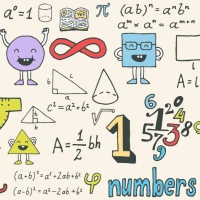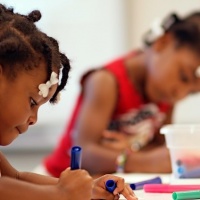It’s a beautiful afternoon, the weather is fine. The traffic was quite light on my way back to the office, one of those days you’d call an easy day. I settle in to catch up with missed calls, texts and other correspondences. There is this one message I don’t seem to understand... Maureen write about this:
"When you have a 'normal' child, and they have good grades, you're happy. When they 'behave' you're happy. But "normal" is a joy, because, of course, it is a privilege. But when you have a child with certain limits, that learning, even if minimal, arrives slowly or maybe never at all. I would like to ask you a favour on an important subject close to my heart; this is the week of special education for people with Autism, Dyslexia, ADHD (Attention Deficit Hyperactivity Disorder)....For all children who struggle every day to succeed and those who are trying to help them. Teach our children to be kind and accept all of their classmates. Children with special needs are no different than any other. They want what everyone else wants: to be accepted Believe it or not, we need it. Every child is unique and different and that's what makes the beauty of the world."
I have seen this somewhere but not sure where. Not being aware of the source of the statement above, I decided to read again. Could this be happening to anyone I know? Is it possible that many families are going through this challenge? My phone is blinking again! This time, he continued;
“My son just finished school cert. And he will turn 20 on the 11th (of May)..next week. Wasn't as sharp as the rest. And all he suffered in the hands of the bright ones!!! When he finished his papers last Wednesday 03/05, he came to my office exhaled and said... finally!! I gave him a fist bump but when he stepped out, I shed not a few tears for him”
While the former was a message people were requested to share on their Facebook walls in support of ‘unique’ children and their parents, the latter was quite personal.
There are no manuals on what to expect with each child. Nobody warns you of the possibilities that the child being born might not be like every other child. We find parents lending support to their challenged children while needing support themselves. The challenges come in very different forms; some medical, some behavioural and some are developmental. We are good time keepers of milestone developments of our children, we track when they should talk, walk, start school etc. Reality begins to set in when we do not see signs of the expected milestone at certain points in time. Where do we turn to for help, how does one even start this journey?
Who supports those who support the challenged child? What does it feel like to know that your bundle of joy is challenged? How does one even process the news of having to cope with a child with limited abilities? Who sets the standard for regular or challenged? We are made in different shapes and sizes, fulfilling different purposes in the lives of our loved ones. The variety of personalities spice up our life experiences. Some may never know what it means to be in and out of hospitals, constantly seeking help for a child who is challenged or to see your child being mocked by his peers; for others it is a road travelled in silence, laced with tears, yet putting up a smile at intervals.
But there must be something we can all do to help... it's a load of torment for a 20 year old to be in the same class with pupils much younger than he is, it is enough hard work for him to catch up with them intellectually… these are enough issues to cope with. When the classmates make fun of such children; it is a reflection of the home, school and society not living up to our responsibilities. When Teachers and Parents are carefree with words in the presence of their wards who in turn use same on their classmates or when adults make light of such situations insinuating that the situations are caused by negligence on the part of the parents of the challenged children; we are simply endorsing bad behaviour and bullying amongst our children. Our actions or lack of it trigger a chain of actions which could only hurt someone more.
Let us be careful in our conduct... words, action and the reaction, the pain of living through each day bearing in mind how life could have been if only one had a ‘normal’ child is much already, don’t make it worse. Lend some support and by that, teach your child to do the same.












Comments